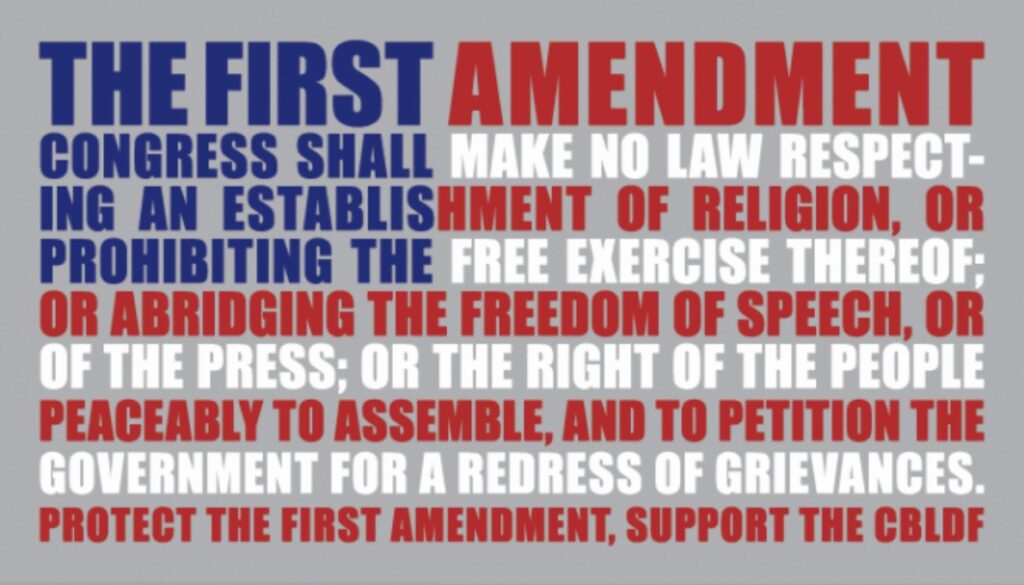
The promotion of religious freedom in America, a cause that not long ago had near unanimous support on Capitol Hill, has fallen victim to the culture wars.
A high point came in 1993, when Congress overwhelmingly passed the Religious Freedom Restoration Act, meant to overturn a Supreme Court decision that limited Americans’ right to exercise their religion freely.
Those days are gone. The consensus surrounding religious freedom issues has been weakened by deep disputes over whether Americans should be free to exercise a religious objection to same sex marriage or artificial contraception and whether the U.S. Constitution mandates strict church-state separation.
For a long time in the country we kept it down to a dull roar. When that’s no longer possible, it’s a problem.
Todd MacFarland, Associate General Counsel, Seventh Day Adventists
“It is more difficult to get a broad coalition on religious freedom efforts now,” says Holly Hollman, general counsel at the Baptist Joint Committee for Religious Liberty. “People have a bad taste in their mouth about what they think the other side thinks of religious freedom.”
“It’s a divisive issue,” says Todd McFarland, associate general counsel at the General Conference of Seventh-day Adventists, a denomination historically known for its advocacy of religious freedom. “For a long time in the country we kept it down to a dull roar. When that’s no longer possible, it’s a problem.”
The religious freedom question could arise again in the months ahead, as the U.S. Supreme Court considers whether to take new cases that involve the limits on Americans’ religious rights.
Most of the attention, especially in recent decades, has focused on the “free exercise” clause. An important case involved Adele Sherbet, a Seventh-day Adventist, who was fired for refusing to work on Saturdays and then denied unemployment benefits. In a 1963 decision, the U.S. Supreme Court ruled that Sherbet’s free exercise right had been violated.
In a 1990 decision, however, the Court significantly narrowed the Sherbet precedent, ruling against a Native American man, Alfred Smith, who was dismissed from his job because he had illegally ingested peyote as part of a religious ritual.
The Court’s Smith ruling met with bipartisan outrage in the U.S. Congress and led to passage of the RFRA legislation. Among the sponsors was a first-term liberal Democrat from New York, Jerrold Nadler.
“Unless the Smith decision is overturned,” Nadler argued on the House floor, “the fundamental right of all Americans to keep the Sabbath, observe religious dietary laws, to worship as their consciences dictate, will remain threatened.” The bill passed the House unanimously and was approved in the Senate by a vote of 97-3.
Religious freedom politicized
In the years since, however, the religious freedom cause has been politicized, with conservatives claiming it for their purposes and liberals shying away from it for reasons of their own.
When liberals started pushing for expanded protections for the LGBT population, conservatives grew alarmed, arguing that practices such as same-sex weddings go against biblical teaching. They’ve argued that religious freedom should mean they can’t be forced to accommodate something they don’t believe in. Liberals portrayed that stance simply as discriminatory and argued it should be illegal.
Sen. Ted Cruz, R-Texas, made the issue a major theme of his campaign when he ran for the 2016 Republican presidential nomination.
“We’re a nation that was founded on religious liberty,” Cruz told an interviewer, “and the liberal intolerance we see trying to persecute those who as a matter of faith follow a biblical definition of marriage is fundamentally wrong.”
Continue reading here.
[Editor’s Note: This article was written by Tom Gjelton and originally published at NPR. Title changed by P&P.]











